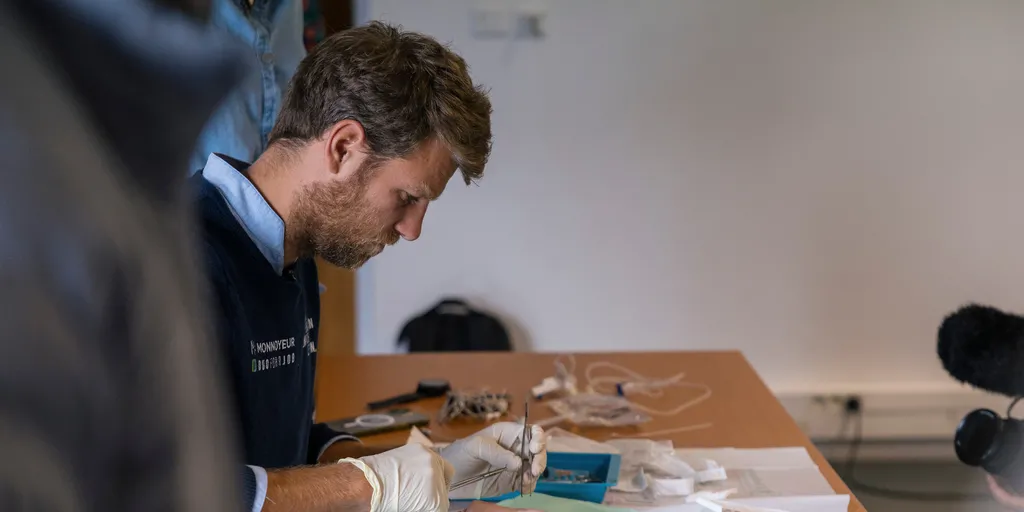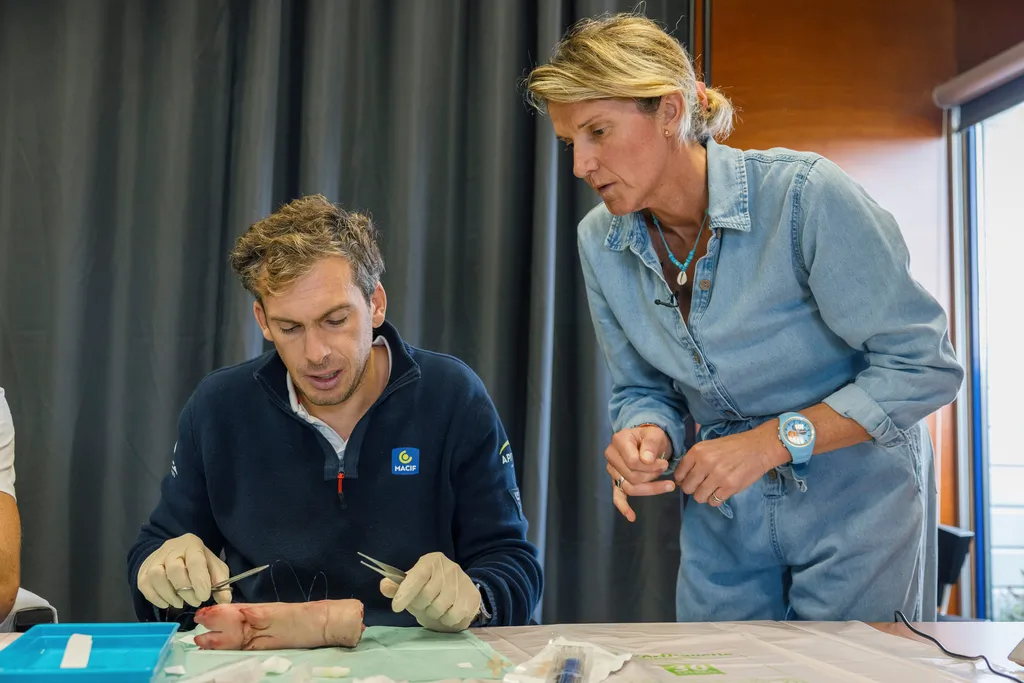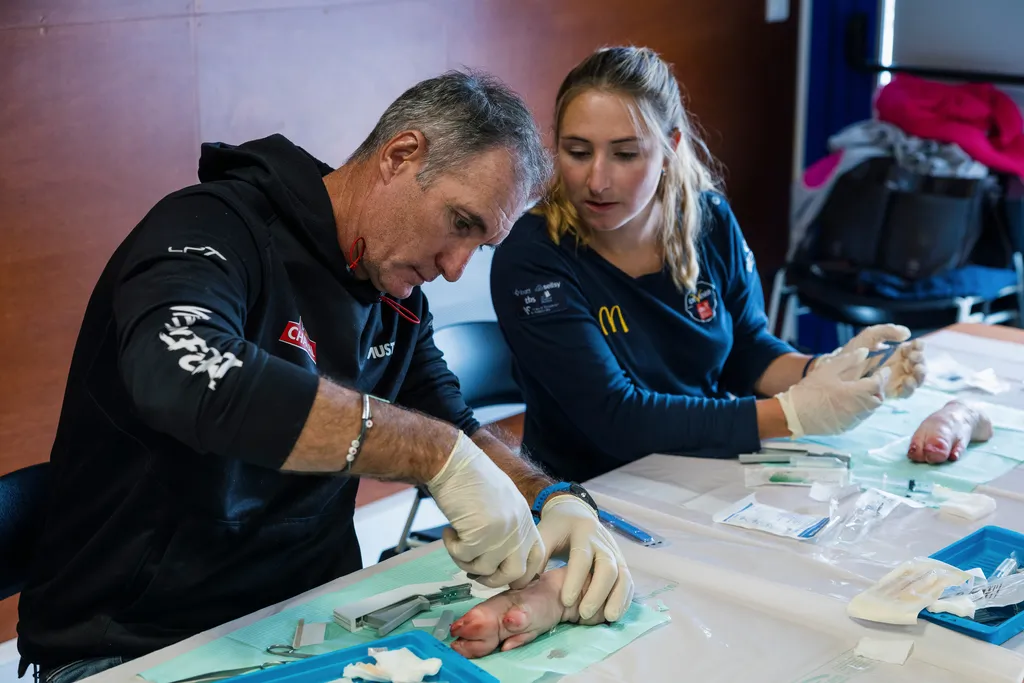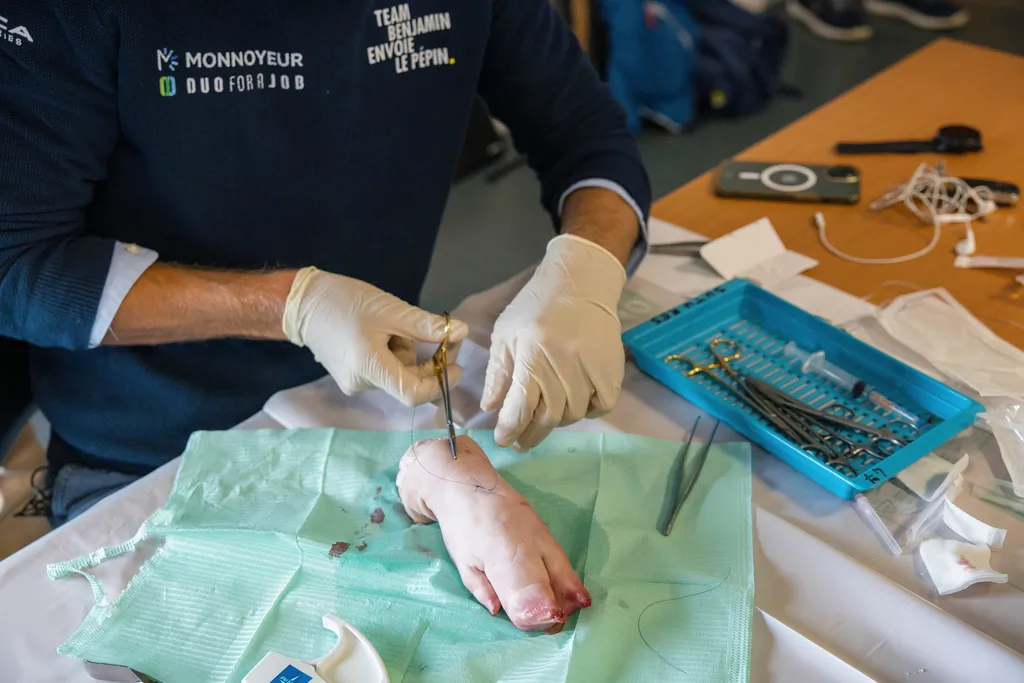Laure Jacolot, race doctor: “When sailors call, it's rarely to take a Paracetamol!”
The role of the race doctor on a non-stop, non-assisted, single-handed round-the-world race is not a trivial one. In 2024, it will be taken on by Laure Jacolot, surrounded by two other doctors. The hostile environment in which the sailors live, and their distance from land, make this mission a special one. An emergency doctor and sports physician, Laure has been working with ocean racers for almost 20 years. Meet a doctor like no other.

Vendée Globe :
How do you prepare for the Vendée Globe as a race doctor?
I work upstream with the race management team to define what tests we're going to ask of the skippers, to determine whether they're fit to race solo around the world. There's a lot of work involved in studying the files, and then we work with them to inform them of the communication procedures. They can have their own doctor, but this person will have to collaborate with us, because if there's an absolute emergency requiring the skipper to be evacuated, it's the race doctor who will be in contact with the rescue chain.
Before the start, all skippers take part in medical training sessions, during which we review what they have available in their on-board pharmacy. It's very important for us to establish a relationship of trust with them.

Vendée Globe :
And during the race, what's your daily routine?
During the race, my primary role is to advise. With the team, we're on call 24 hours a day, with an on-call telephone. If anything happens, the skippers call us directly. If it's serious, it can go through the team manager. They know their skipper well, and they often judge the degree of seriousness according to what the skipper is no longer able to do as a maneuver, and that's often a good basis! I have to be contactable all the time, to have a network and a battery. It's a major mental burden, because we're really focused throughout the race, and that takes a lot of energy.

Vendée Globe :
You're also a doctor for the French basketball team, a volleyball team and a table tennis team. What's the difference between skippers and other athletes?
Skippers don't have the same pain threshold. Generally, when they call us, it's not for nothing... It's not to take a Paracetamol! But it's also due to the distance and the difficulty of communicating at a distance. It's imperative to establish a relationship of trust. I've sometimes had to explain to them afterwards, when they've returned to shore after a race, that certain situations could have been serious.
Vendée Globe :
Are the health and well-being of skippers considered to be performance drivers?
They are beginning to learn about the importance of prevention to avoid decompensating at sea. But for the moment, performance is still very much focused on the boat. However, we feel that this is changing.



